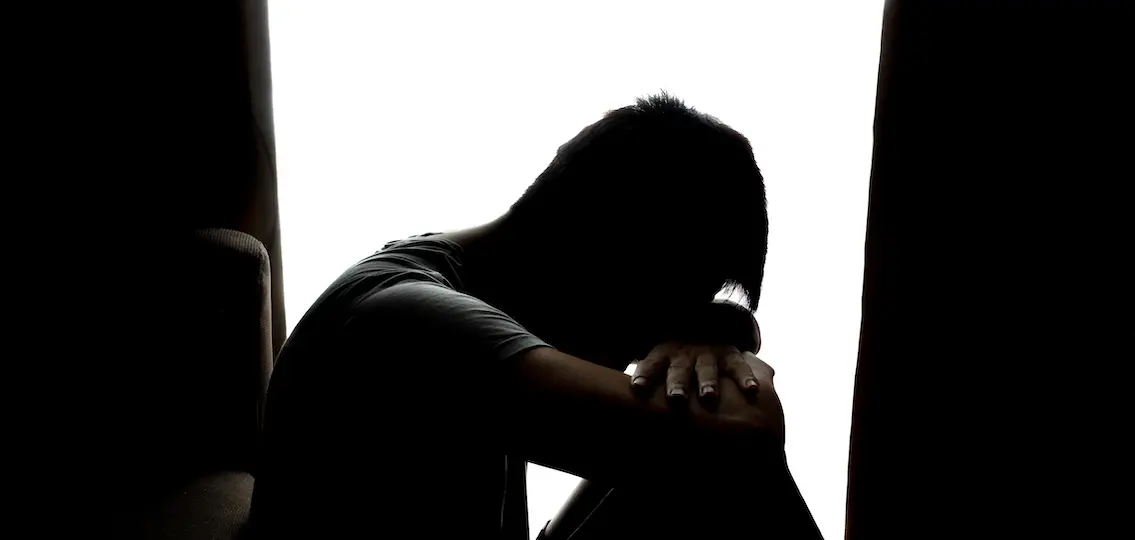When teens struggle one way or another, it’s hard to know how to help them. And sometimes, they need more help than we, the parents, are able to give. Below, one teen shares his experience with anxiety and therapy, and then an expert weighs in with some general advice on how to determine if your teen needs professional help.
Teen | Theo Vitan
For most people, flying is only annoying because it’s hard to fall asleep on the plane or because they don’t like rushing. For me, it was more than annoying: I didn’t know why, but every time I went to an airport—no matter how optimistic I was before the trip—I would start feeling sick and end up barfing.

My family tried to help get through trips every way they could, like getting to the airport earlier so we wouldn’t have to rush. We thought this was working, but then at the last second, right before we were about to board the plane, I started feeling sick. The weird part was that a few years ago I had no problem flying and was considered “the best traveler in the family.” Then, suddenly, I just changed.
Finally, my parents made the decision to get me therapy for my fear.
The first few sessions, we didn’t do anything, I would just sit there awkwardly or play with the little toys that my therapist let me play with. After a few sessions, though, we started actually making progress.
One reason my parents thought I was having trouble was that the flight from when my family moved from Virginia to California had triggered something. It turns out they were right. As I dove deeper into my own pool of emotions, I discovered that I was anxious because I was afraid that I wouldn’t return to my house after the trip.
I was anxious about this because my home is a place where I always felt safe, and if I lost it, or if it lost me, I don’t know what I would do.
After we found out what the most likely cause was, we had to find solutions. We thought of lots of ideas to try to calm me down, but the most useful one was that I should listen to music when we were walking through the airport and when we were boarding. This solution was my favorite because it calmed me down and distracted me from the airport. After two or three trips using this method, I didn’t even need it anymore. Now I can fly with ease.
If you are ever scared of something and can’t seem to cure it, you should get therapy. It does not matter how old you are, or what you are afraid of, therapy does help. Most kids avoid therapy, because they think it will be too awkward or because they think it is a waste of time.
I thought that way too, but after I finished with my sessions, I felt that it was definitely worth it, even though I didn’t want to do it.
Theo Vitan is a seventh grader at Huntington Middle School in California.
Expert | Jeanette Sawyer Cohen
As parents, it can be difficult to know when to seek professional help for your teen’s struggles. Nearly all parents feel ambivalent about bringing a new, outside, expert perspective into what feels like a private family matter. Parents may on some level believe their child’s struggle is “just a phase,” “attention-seeking,” a sign of weakness, and/or that parents themselves are to blame.
Because you care so much for your teen and don’t want to see him or her struggle, it may be tempting to minimize or dismiss his or her distress. Your teen’s worry or sadness may sound dramatic or illogical to you. It can be easy to justify not seeking help. Faced with Theo’s flight anxiety, many parents may have thought, “well, he’s just not a good traveler,” or “we don’t fly that often so it’s not a huge deal,” or “let’s not draw any more attention to this; maybe it will go away on its own.”
| [adrotate banner=”173″] |
Yet, we can counter such rationalizations with the facts—Theo was a good traveler. It’s a huge deal to him. And it hasn’t gone away on its own.
Some situations are clear-cut—if your teen mentions thoughts of suicide or self-harm, consult with a mental health professional immediately. But not every problem your teen faces requires therapy. If you have concerns but aren’t sure whether to seek professional help, your pediatrician, school counselor, or other mental health provider can help determine whether therapy is warranted by first learning more about the concerns:
When to Go to Therapy: 3 Factors to Consider
1. Severity
It’s important to assess severity: How impactful is the symptom or problem? Is quality of life significantly affected (e.g., school performance, relationships, daily routines)?
2. Frequency
Of equal importance is frequency: Everyone feels worried or down periodically. Is your child’s symptom infrequent, or persistent? You may not be sure how severe or frequent your teen’s symptoms are, but if he or she asks for help, that’s a sign of subjective distress.
 Need help on where to start? Try this article?
Need help on where to start? Try this article?

3. Gut feelings
It is also important for you to trust your gut – you are the expert on your own child, so if you have an anxious or uneasy feeling that something is off, that’s a good reason to consult with a professional.
Theo shared common beliefs about therapy—that it would be awkward and a waste of time. And while it’s true that forming a new relationship may feel awkward at first, it’s also true that therapy for anxiety and many other concerns is practical and effective. Theo began as a skeptic, yet he learned that therapy provided him with valuable insight into the meaning of his symptoms, as well as a practical strategy that helped him feel better.




